Step by step guide
Smart: replace inlet/outlet pipe
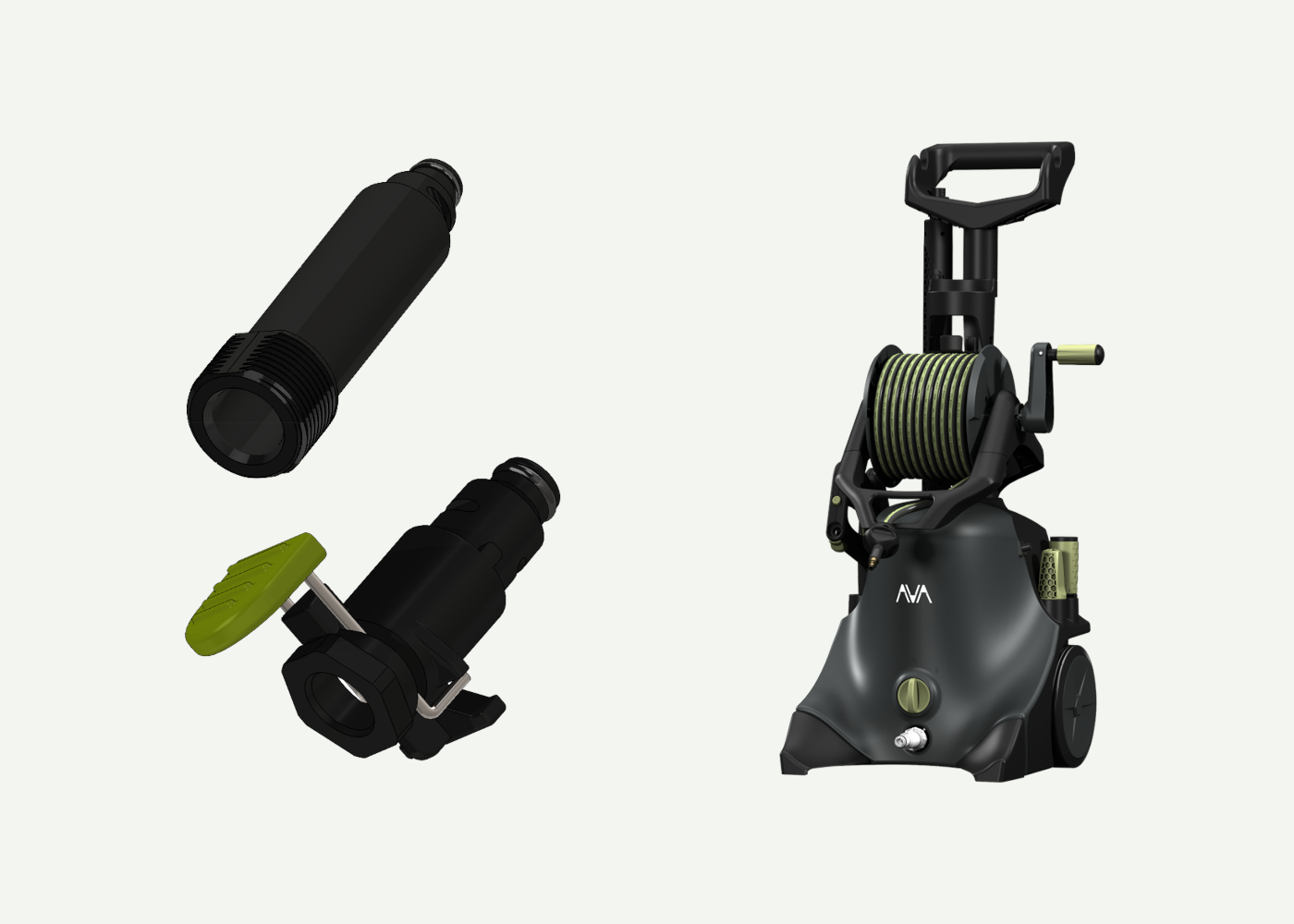
Servicing our pressure washers are quite straight forward and could be done by most people by following the step-by-step instructions in this manual. Please go trough the whole manual before starting work on your pressure washer to make sure you understand the procedure and that you have the necessary tools to complete the task.
Always unplug the pressure washer from both the mains power and the water outlet before starting the service. Even though power and water is disconnected there may be pressurized water in the hose. Discharge this pressure by pulling the trigger on the gun. Make sure your work area is clean and appropriate for the work you are about to do. There will usually be a small amount of water inside the pump and hose. If you are doing a 10-year service, then be prepared to collect the used oil from the oil chamber. Please dispose of the oil in accordance with local law and regulations. ISO 46 hydraulic oil can be substituted with similar non detergent oil of the same viscosity.
00. Parts and tools
An overview of what is needed to do this service.

01. Remove the water filter
Unscrew the water filter and remove it.
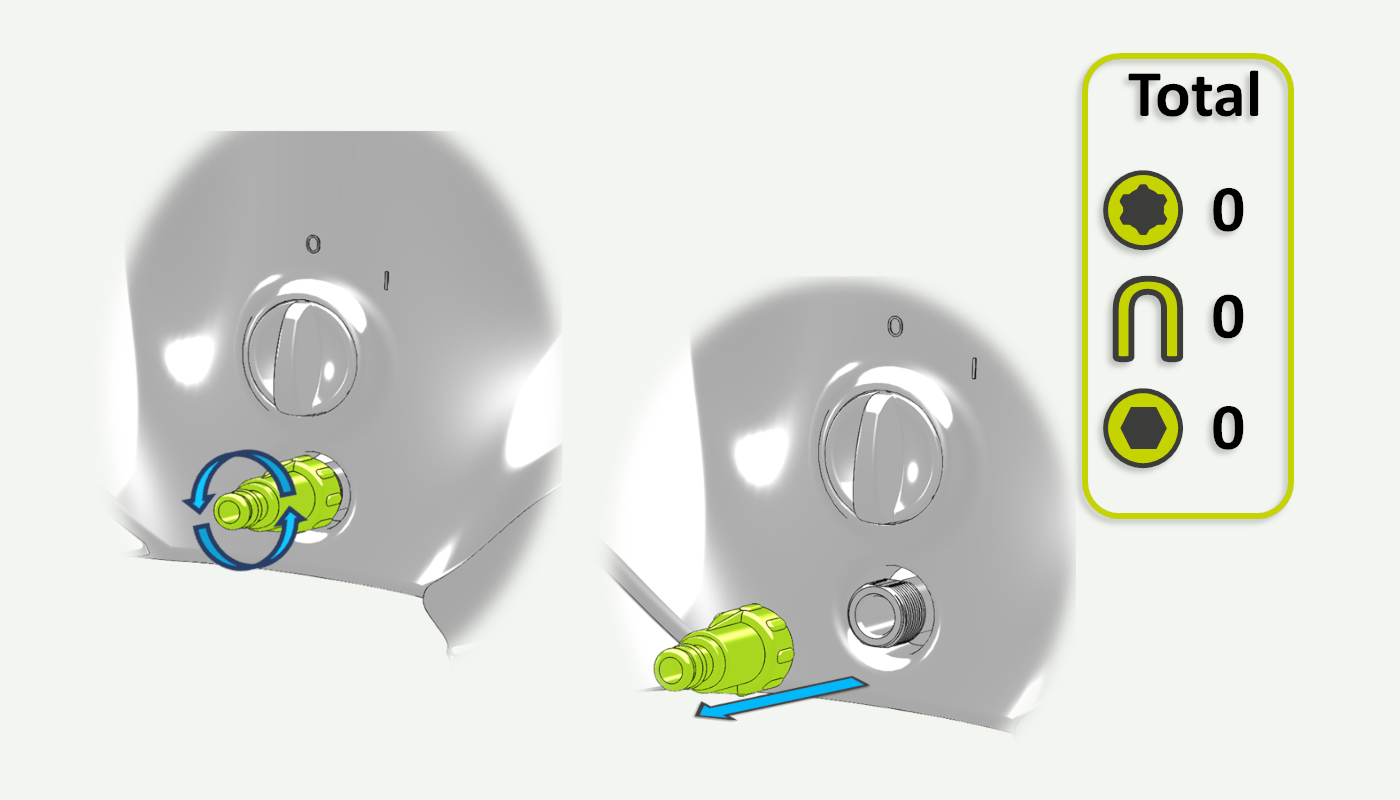
02. Remove screws
Release the short pressure hose from the pump outlet. Unscrew the six T25 screws from the back cabinet.
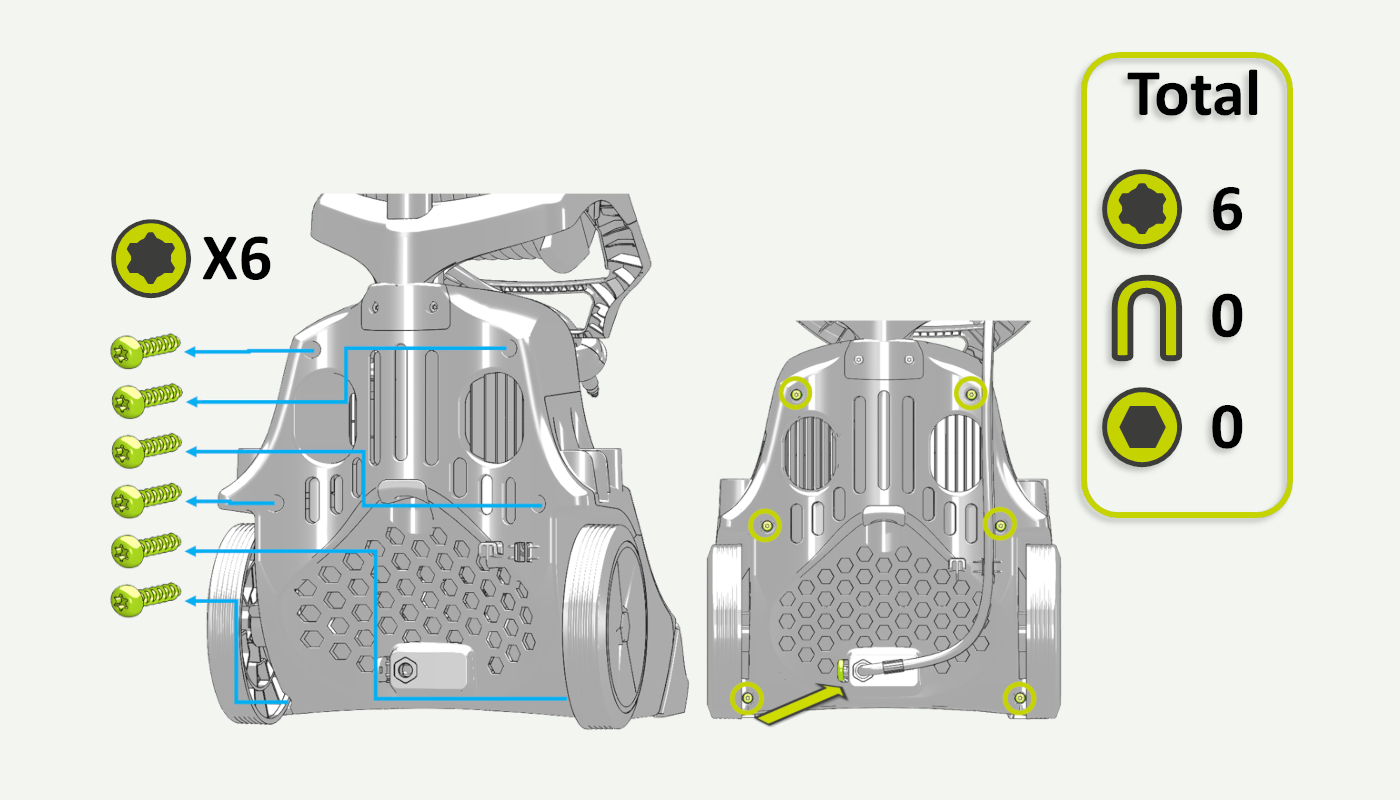
03. Remove the front cover
Remove the front cover. Then remove the on/off knob.
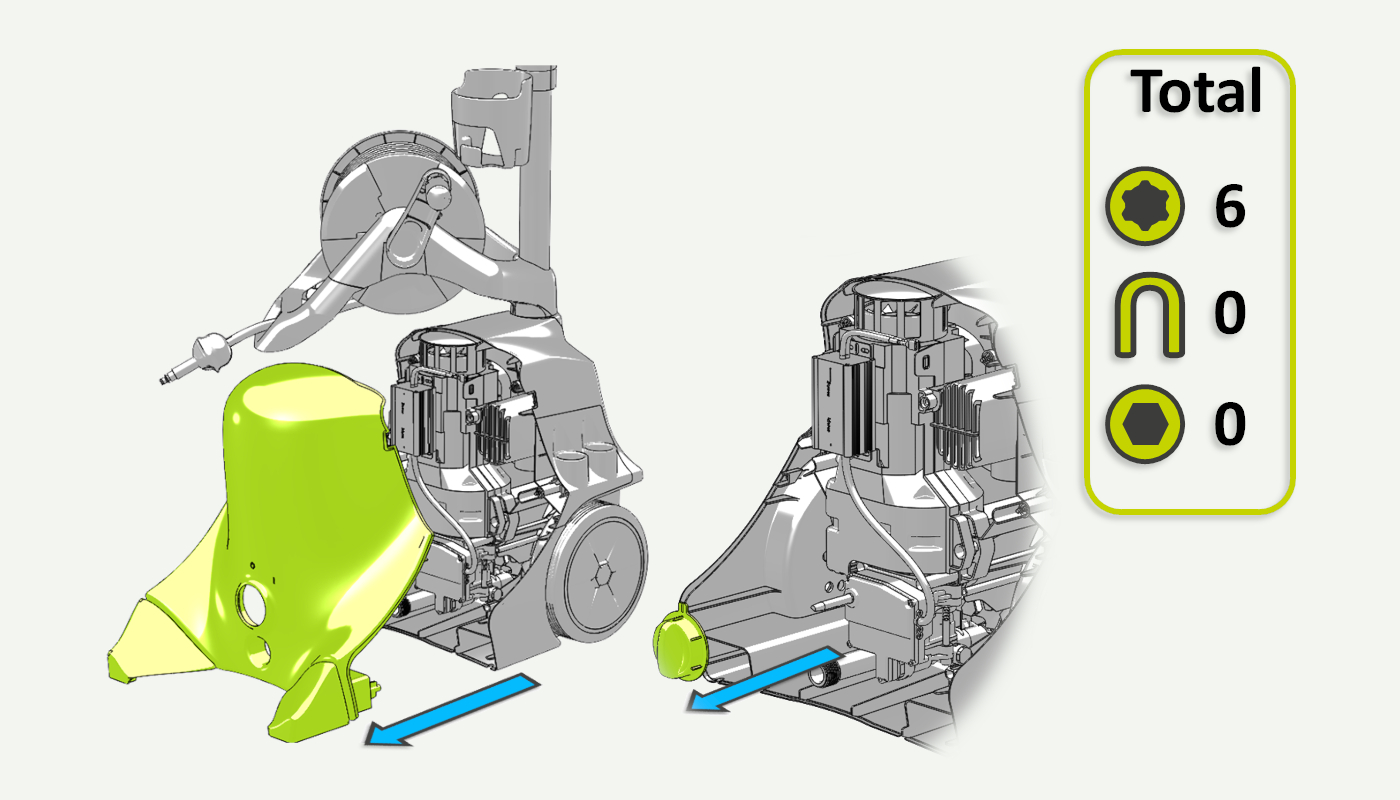
04. Remove screws
Unscrew the three T25 screws securing the motor/pump.
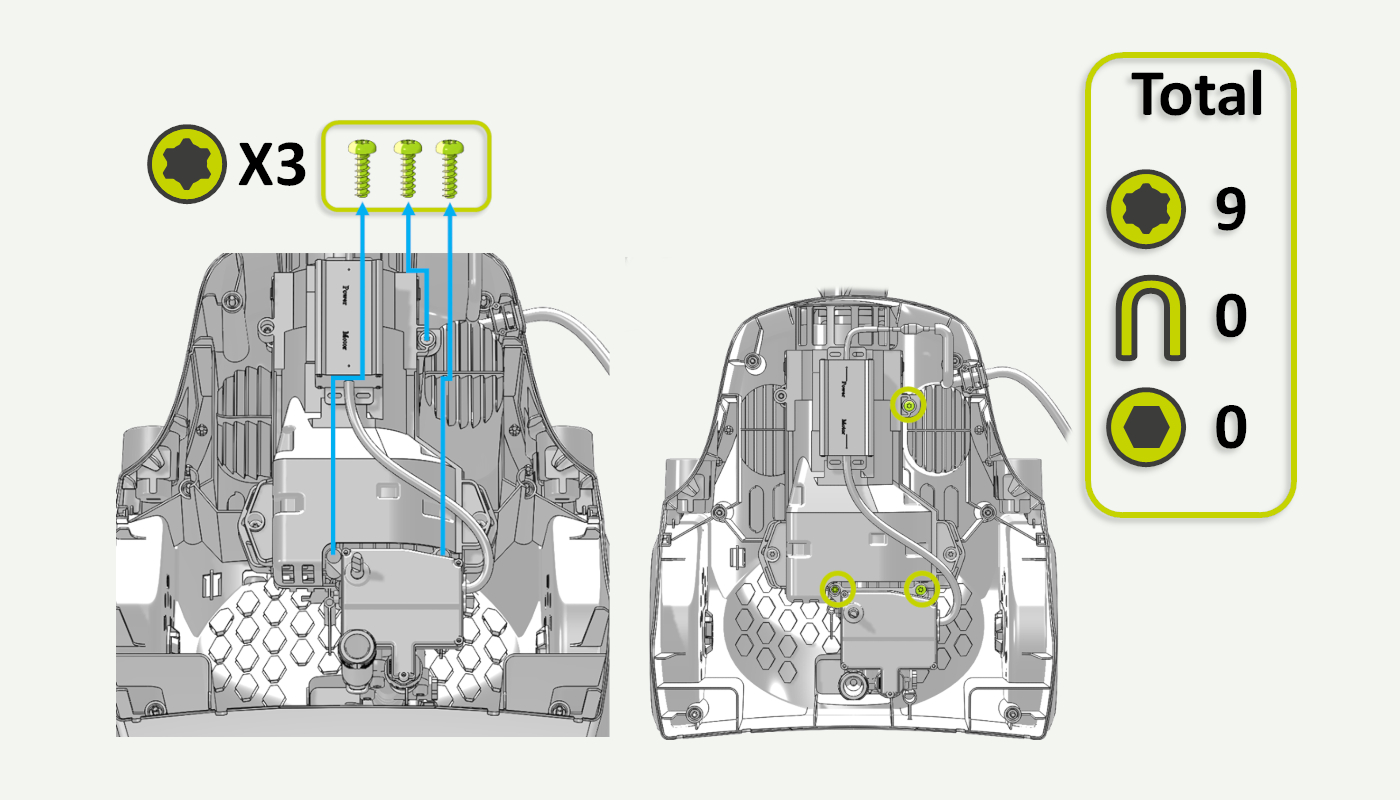
05. Disconnect the soft start box
Disconnect the power cable from the soft start box.
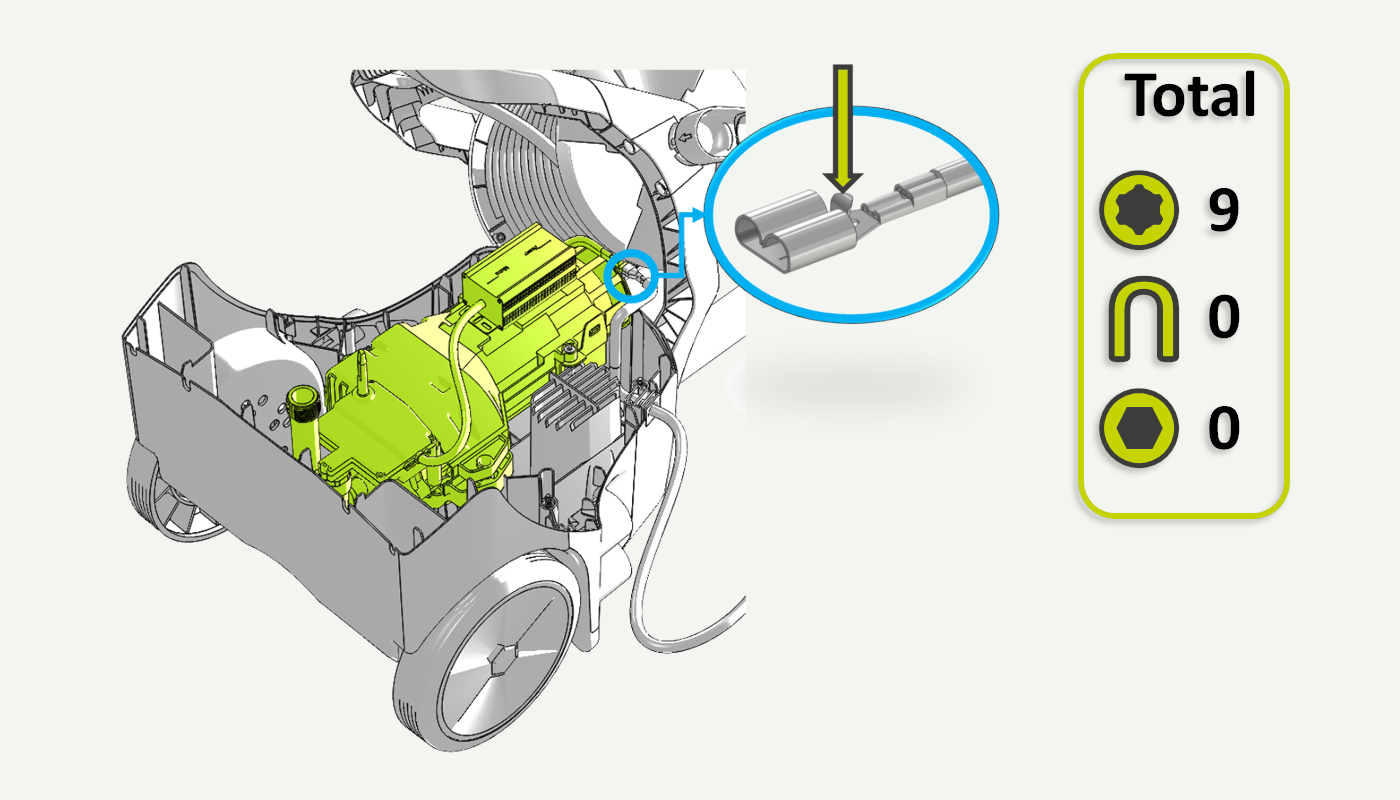
06. Remove the motor/pump
Carefully lift out the motor/pump assembly.
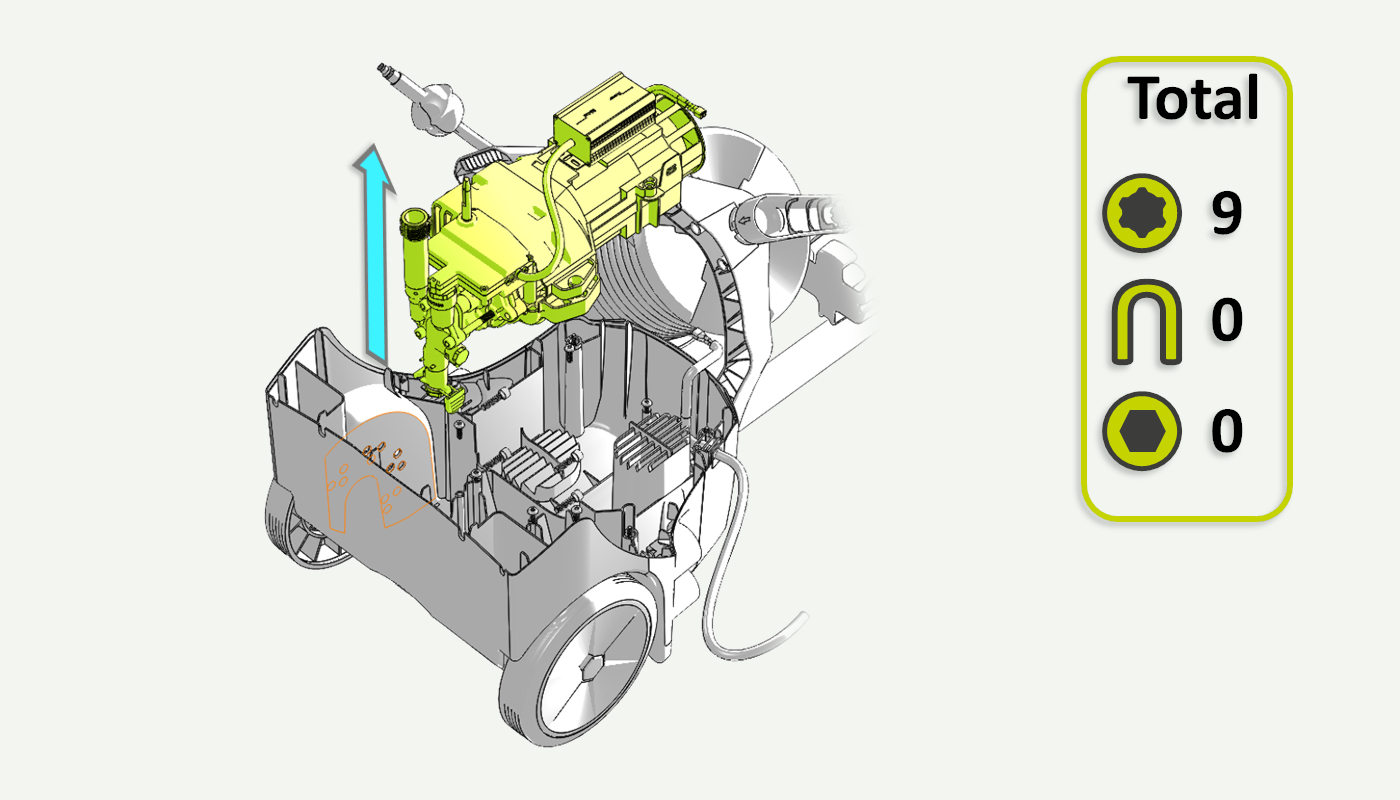
07. Remove inlet pipe
With the motor/pump out, remove the U-pins securing the inlet and/or outlet pipe. A flat head screwdriver or similar tool is useful to pry out these pins.
Then remove the inlet and/or outlet pipe from the pump head.
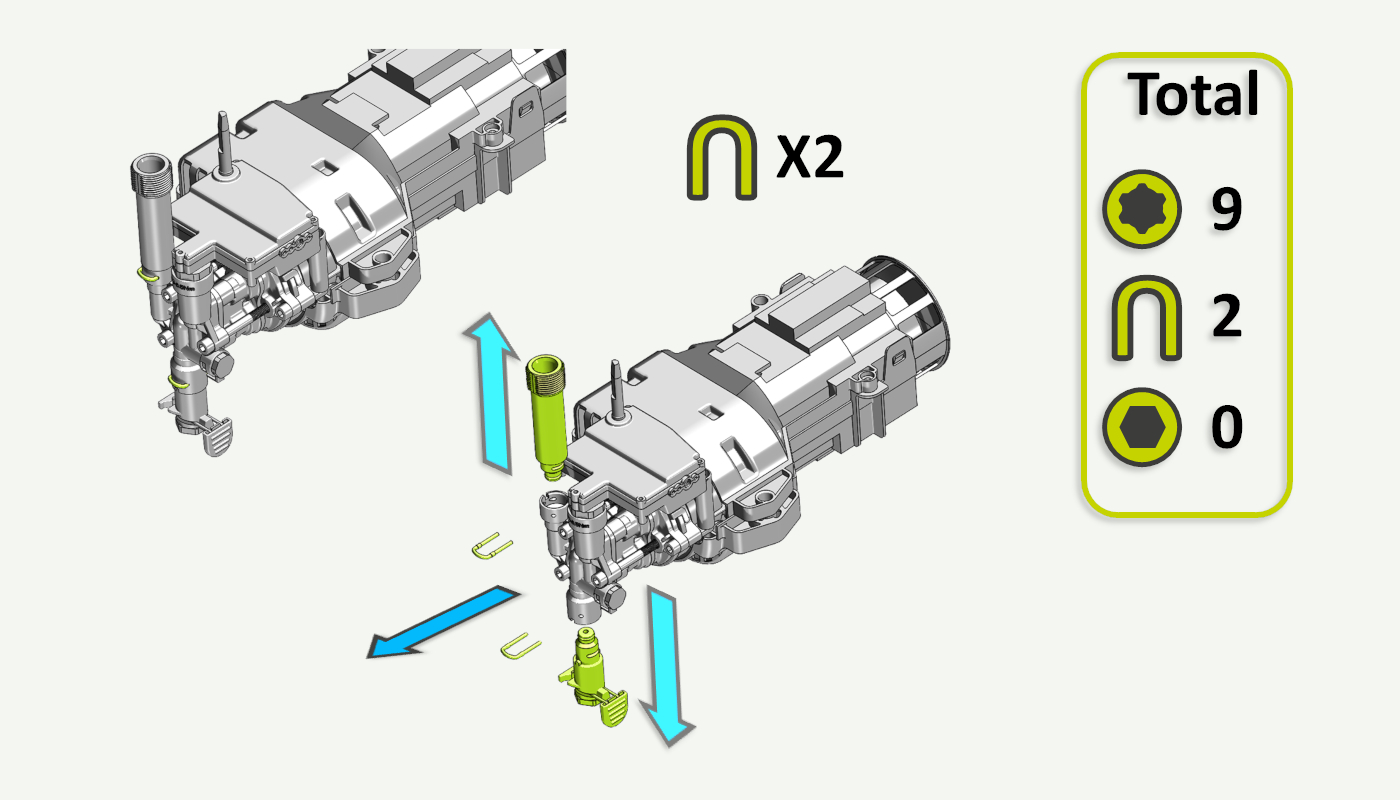
08. Attach inlet and outlet pipes
Attach the inlet and/or outlet pipes and secure them using the two U-pins. You may want to use a small hammer or something similar to lightly tap them into the pump head.
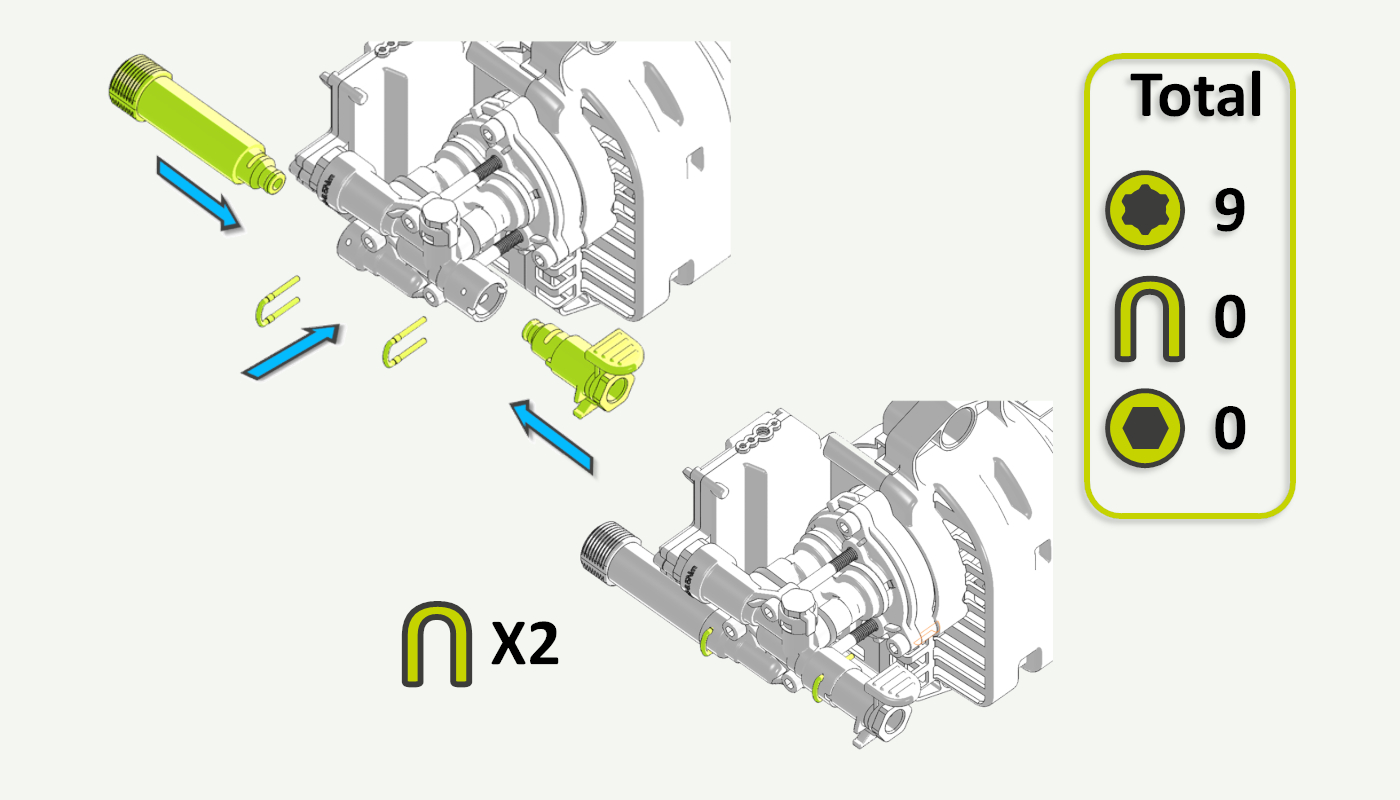
09. Put the motor/pump assembly into the rear cabinet
Turn the motor/pump unit so that the switch box and water inlet is facing up and place it back into the rear cabinet.
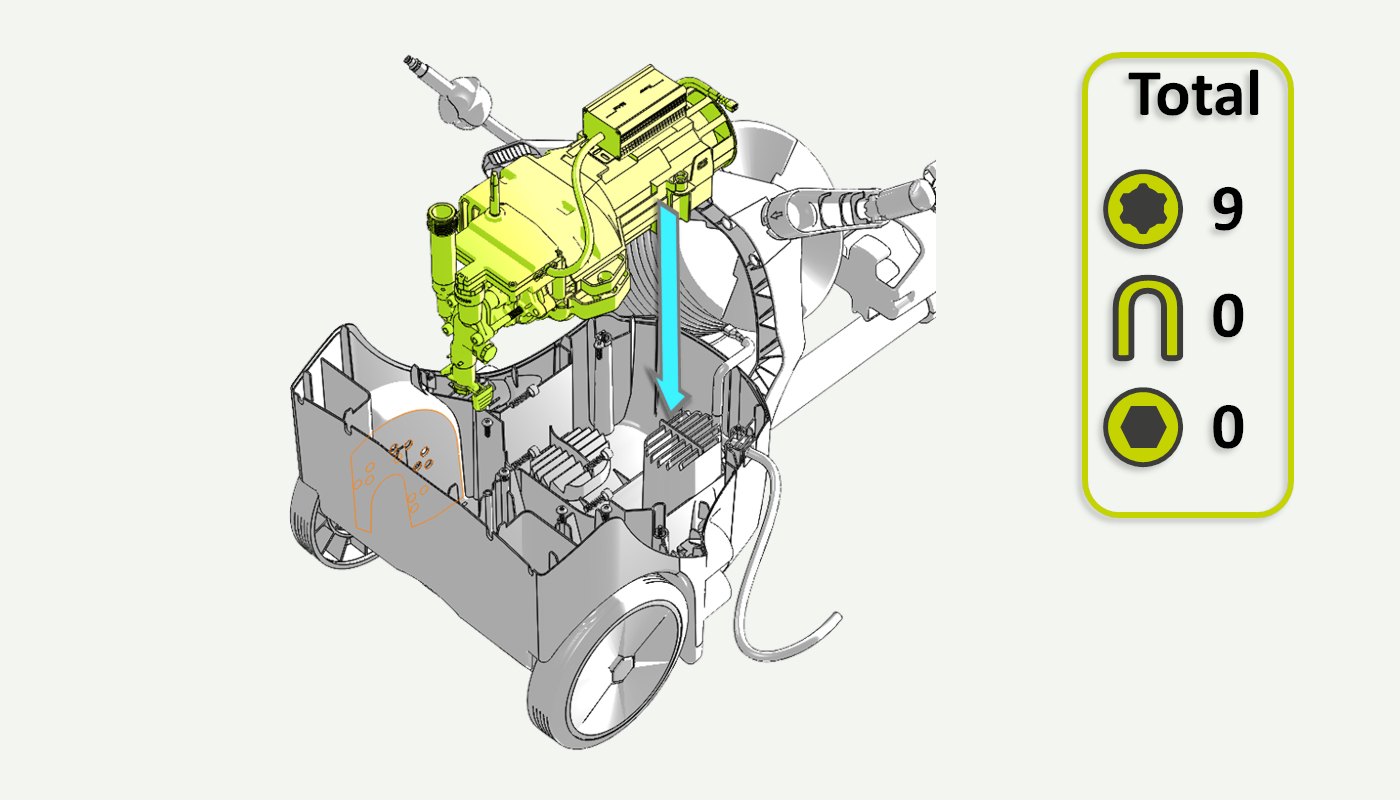
10. Secure the motor/pump
Secure the motor/pump and the switch box using the three T25 screws.
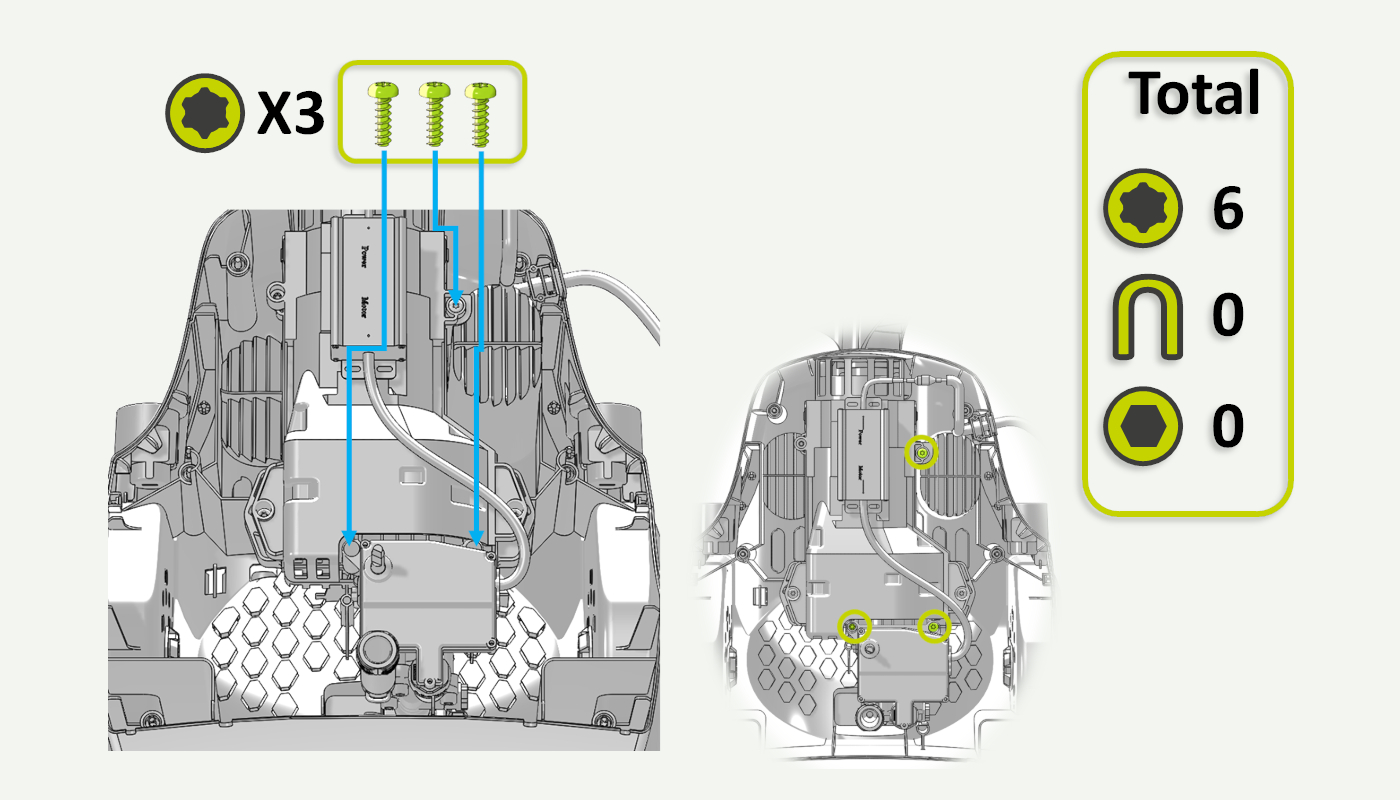
11. Connect the soft start box
Connect the power cable to the soft start box.
Put the on/off switch knob back on to the switch box.
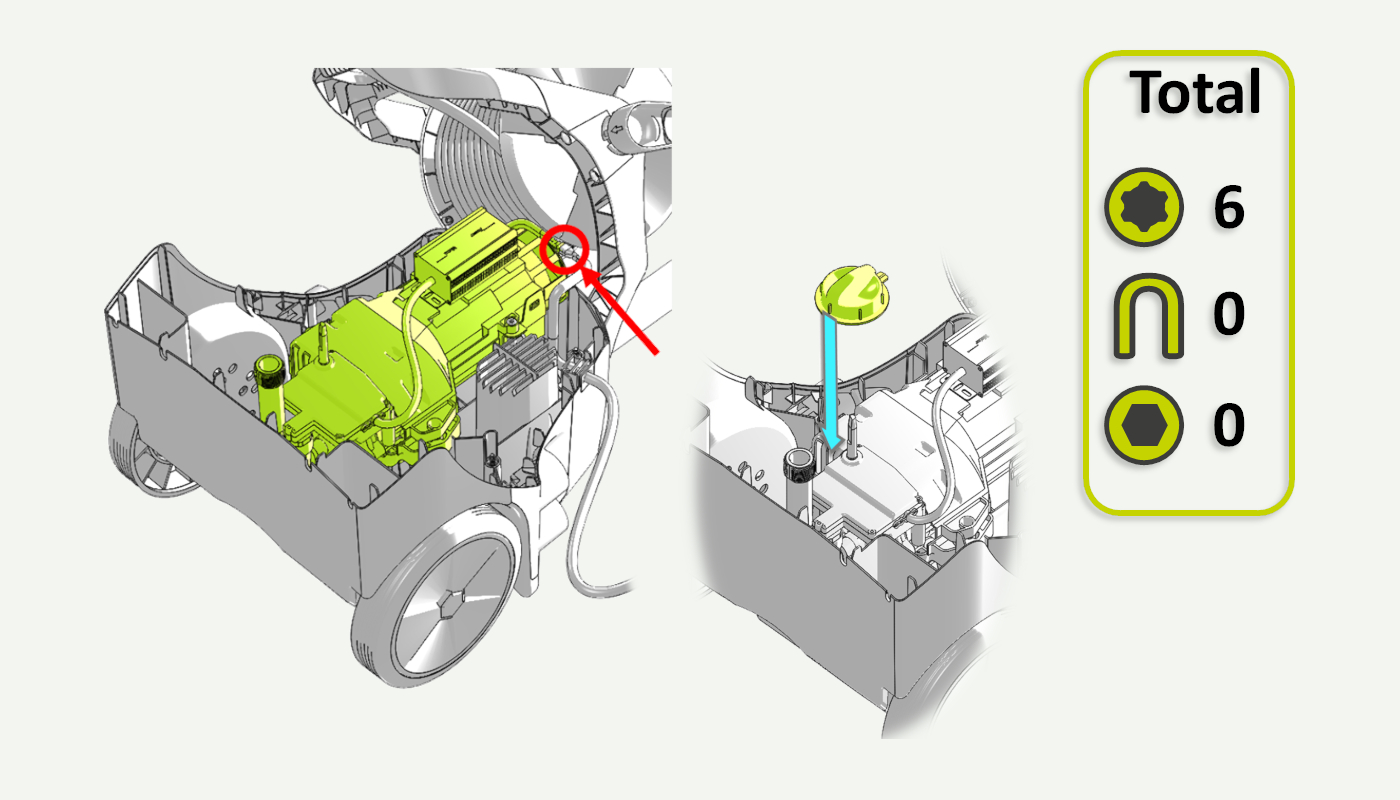
12. Fit the front cover
Carefully fit the front cover to the back cabinet of the pressure washer.
Make sure the on/off button is properly positioned so that it can operate freely.
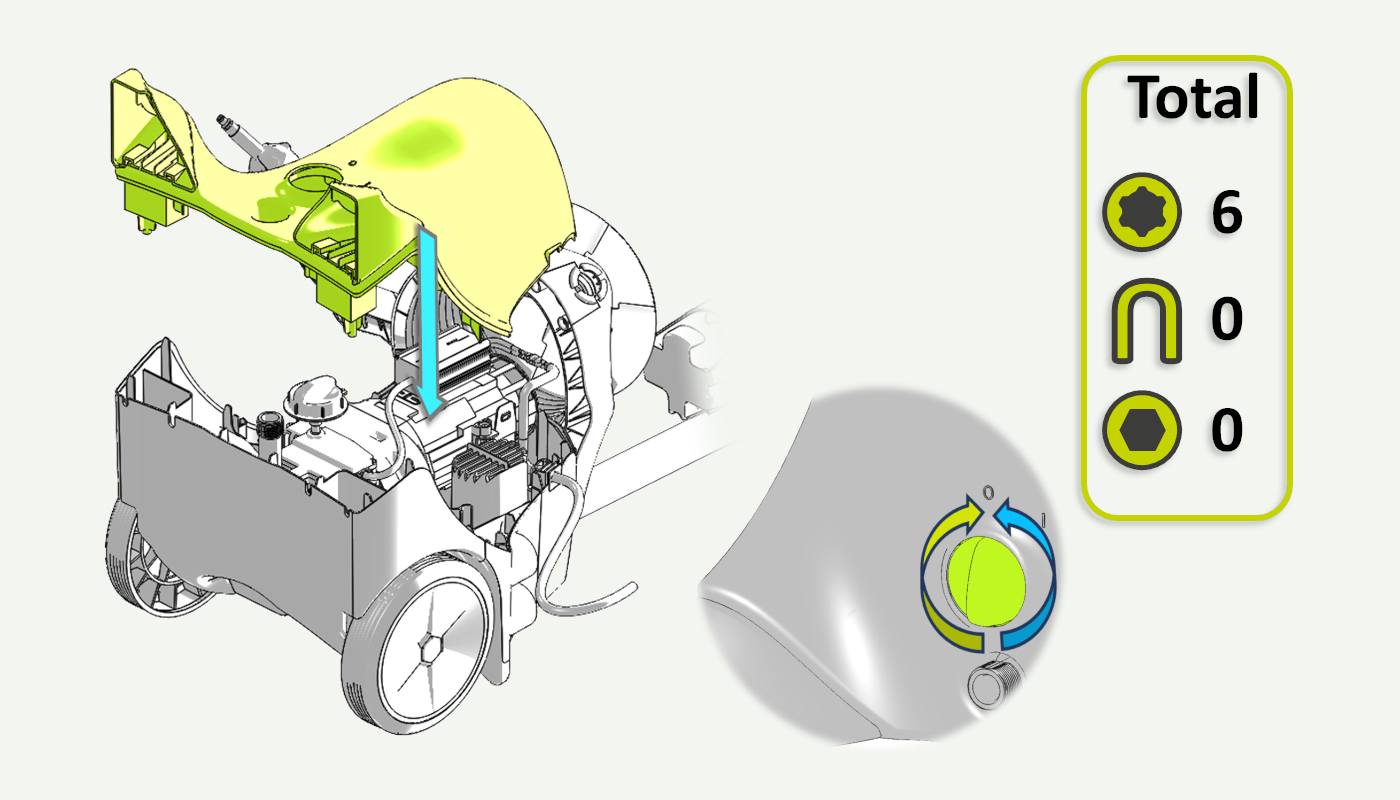
13. Secure the front cover
Make sure that the front and back cover is perfectly aligned. Secure the front cover using six T25 screws.
Attach the short pressure hose to the outlet connector at the back.
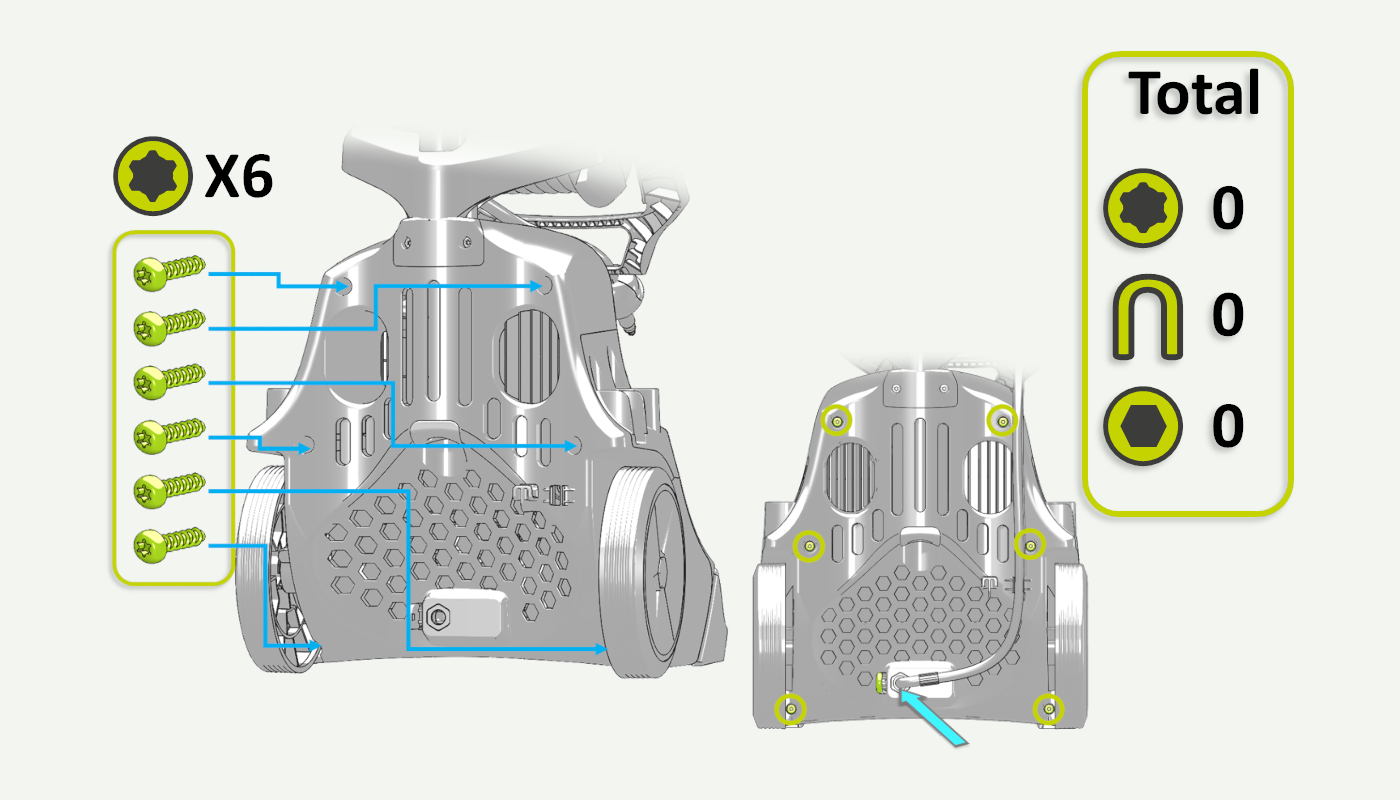
14. Attach water filter
Check that the filter cassette is clean, then refit the water filter.
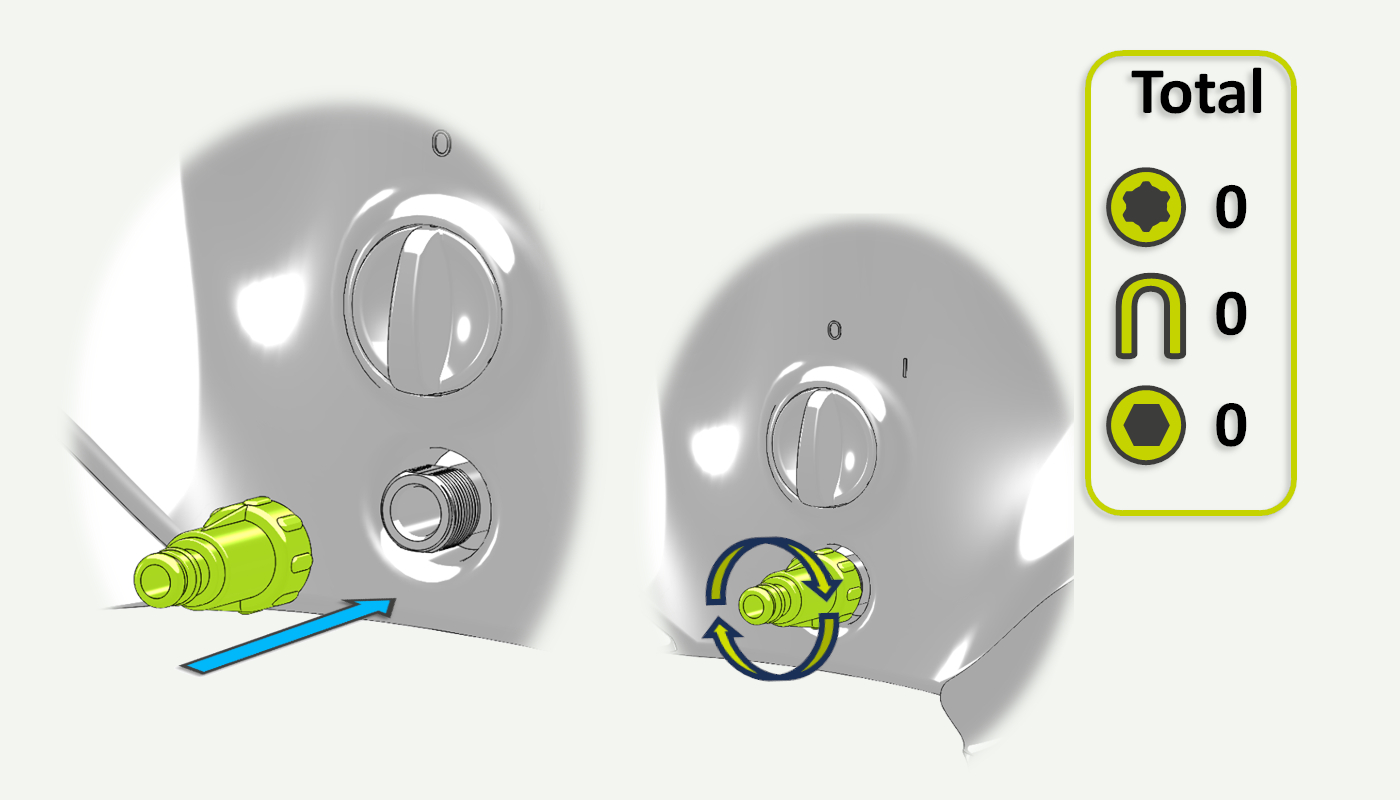
15. First start after service
Congratulations with finishing the service of your AVA product.
It is now time to do the first start after service.
- Start by connecting the pressure gun to the hose.
- Connect water.
- Make sure no water is leaking from the inside or anywhere else on the pressure washer.
- Pull the trigger and let the water flow until there is no more air coming out.
- Connect the power cord.
- Turn on the pressure washer.
- Pull the trigger and let water run for a minute before connecting a nozzle.
- Connect the nozzle. Use the pressure washer and make sure it is operating as normal.
16. Troubleshooting
Water is leaking from the inside
•Disconnect the power and open the pressure washer to locate the leak. Take necessary action to remedy any leaks.
Motor runs and won't stop when you release the trigger
•This is most likely due to an improper seating of the switch box on the start/stop valve. Open the machine and check that the switch box is correctly seated.•
The pressure washer won't turn on
•Check that the power cable is connected.
•Check that the circuit breaker has not been tripped.
•Check that the fuse in the power plug is intact (UK models only).
•Open the machine and check that all the internal cabling is connected.
Poor performance/pressure
•Improper assembly or dirt/debris in the pump. Check that the pump and especially the main valve for foreign objects/debris. Make sure that the spring in the main valve is correctly seated and working as intended.